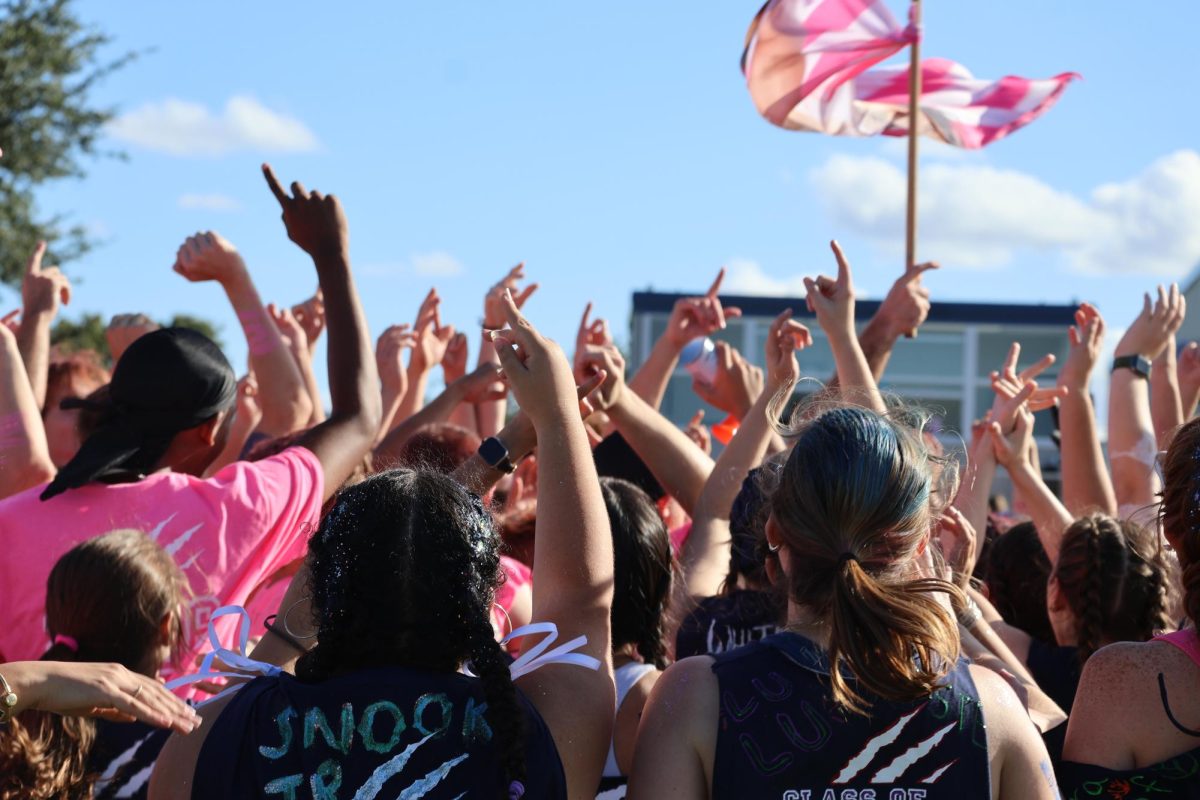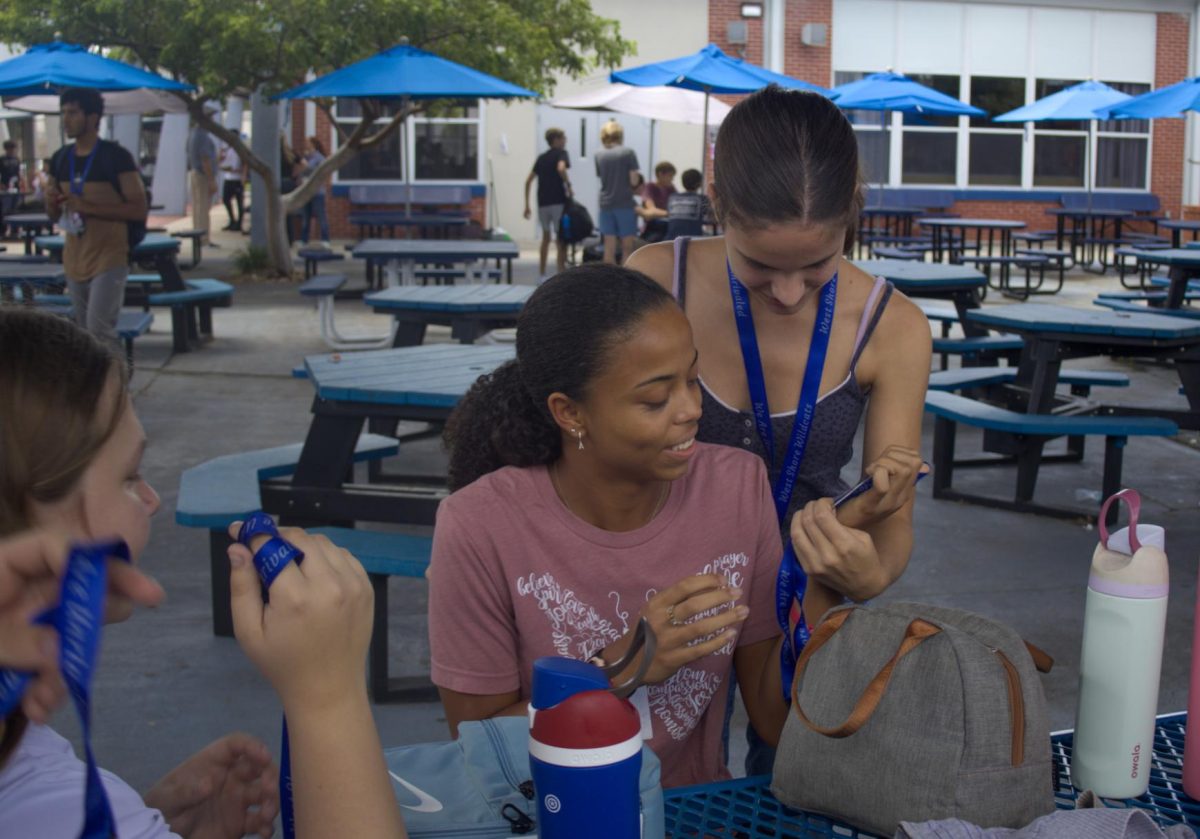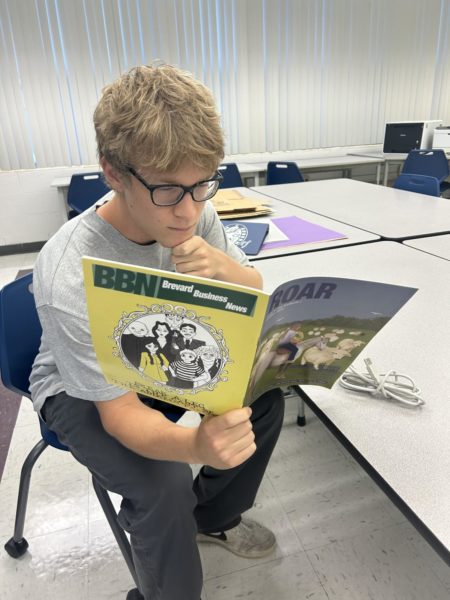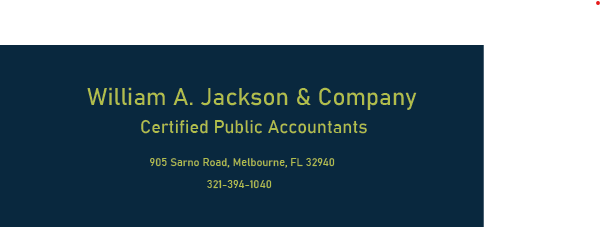For Better or For Worse?
November 5, 2022
Consequences of community service hours change remains unclear.
Bright Futures, a scholarship program paid for by the Florida Lottery, has been a lifeline for Florida families since 1997. The program gives local services a steady stream of student volunteers while making soaring tuition expenses much more achievable.
To qualify for the minimum Bright Futures, 75 percent of tuition being paid off, students must maintain at least a 3.0 GPA in high school, score 25 on the ACT or 1210 on the SAT, and complete 100 total volunteer hours. But a new bill has shaken the foundation of this program, changing the requirement for volunteer hours by allowing participants to satisfy the community-service requirement with their paid employment.
In addition to unpaid volunteer hours. This sudden change comes with pros and cons.
The bill provides quite a drastic change, as the incorporation of job hours undermines how Bright Futures has been supporting volunteering services for the past 25 years. Beach cleanups, homeless shelters, libraries, churches, and school tutoring programs all have heavily relied on student labor, but the change will starve these programs of volunteers. Our local services could look different in the near future: longer lines in homeless shelters, dirtier beaches, and fewer school tutors. When given the choice, many students choose to get their hours from their jobs, because who wouldn’t want to make money while checking off their community-service requirement?
At West Shore, students need to complete 100 volunteer hours by their senior year to graduate. The bill will change the school’s volunteer requirements in addition to the one for Bright Futures.
The requirements for Bright Futures will now seem less intimidating for students who already have jobs. Students who work could finish their volunteer hours without having to do anything out of their regular schedules. This may lead to an influx of applicants for Bright Futures, resulting in another increase in the scholarship’s test score and GPA requirements. Lower-income families could then have trouble receiving Bright Futures, as they aren’t able to afford expensive SAT or ACT tutoring, directly hurting those who Bright Futures is supposed to help. On the other hand, the bill could provide relief for lower-income and working-class families because some need to work to help support their families.
More students applying for jobs and consistently working could fill in the employment problem local businesses struggle with, and could even save some businesses from failing.
In addition, working students could find careers they are interested in, gaining valuable experience and skills in financial management. West Shore doesn’t offer as many career-focused electives as many schools in Brevard. Classes such as auto engineering and woodworking are absent, so this could allow working students could gain the opportunity to explore careers.
While the change appears simple on the surface, it has caused more confusion than expected. What if a student can no longer work and has to switch to volunteering to finish their hours? Will colleges prefer job experience to community service or vice-versa? Will they expect applicants to have experience in both? The bill complicates a system that a majority of students are already used to.


![Sophomore Isabelle Gaudry walks through the metal detector, monitored by School Resource Officer Valerie Butler, on Aug. 13. “I think [the students have] been adjusting really well," Butler said. "We've had no issues, no snafus. Everything's been running smoothly, and we've been getting kids to class on time.”](https://westshoreroar.com/wp-content/uploads/2025/08/IMG_9979-1200x800.jpg)












































